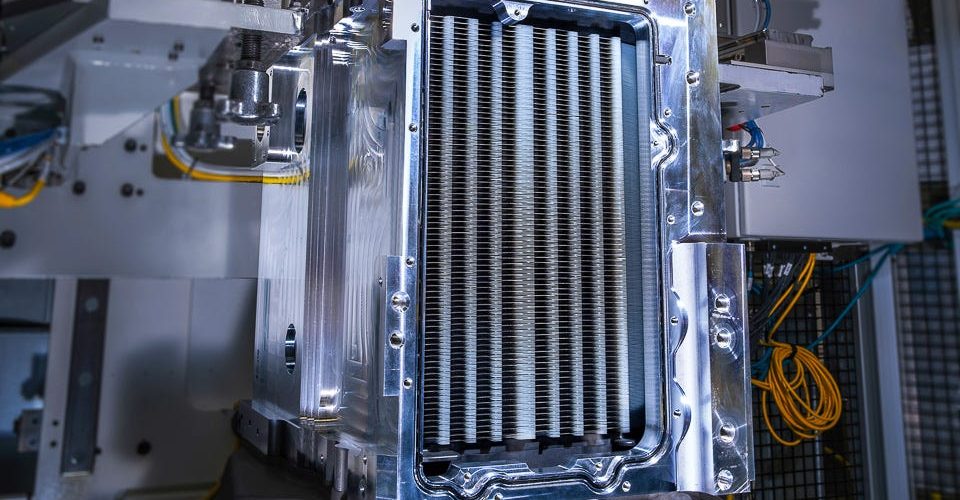Legislation introduced in the state Senate is putting a spotlight on the increasing market demand for alternative-fuel vehicles and new low-carbon energy sources.
State Sen. T.J. Shope, R-Coolidge, has proposed SB1396, a bill that would establish a legislative hydrogen study committee to “Investigate and evaluate existing laws and regulations and recommend legislation related to the production, distribution and storage of hydrogen.”
Hydrogen has traditionally been relied on for petroleum refinement, “treating metals, producing fertilizer, and processing foods,” but is increasingly being considered as an alternative fuel source.
The U.S. Department of Energy notes that hydrogen gained notoriety as an alternative fuel due to its ability to “power fuel cells in zero-emmision vehicles” and the relative ease with which it could be generated domestically.
The gas was first considered a fuel by the federal government with the passage of the Energy Policy Act of 1992.
Nikola Motors
Nikola, a producer of zero-emission vehicles including a hydrogen-powered semi-truck, recently set up operations in the state. The company announced a $1 billion investment in the state in 2018, and built its headquarters in Phoenix near Sky Harbor Airport.
Last year, Gov. Doug Ducey joined the company to celebrate National Hydrogen and Fuel Cell Day. Mark Russell, Nikola’s CEO, said at the time that “Hydrogen is an important part of Nikola’s future. As we get ready for the launch of our 2023 fuel cell electric vehicles that will be made in Arizona, we are working to build a hydrogen production and distribution infrastructure across the nation to power our trucks.”
Ducey has previously supported Nikola’s development in the state, telling reporters in 2018, “Nikola Motor Co.’s selection of Arizona demonstrates that we are leading the charge when it comes to attracting innovative, industry-disrupting companies. This incredible new technology will revolutionize transportation, and we’re very proud it will be engineered right here in Arizona.”
Building infrastructure for hydrogen-powered vehicles
In order for Nikola and similar ventures to succeed, they will need to convince public and private stakeholders that infrastructure that supports hydrogen-fueled vehicles needs to be built.
According to the U.S. Department of Energy, there are already national efforts underway to expand hydrogen infrastructure as alternative-fuel vehicles are deployed. In mid-2021, nearly 50 “open retail hydrogen stations” existed in the United States, and approximately 60 more were under development. Nonetheless, they were largely concentrated in California.
Additionally, a national public-private partnership consisting of “federal agencies, automakers, hydrogen providers, fuel cell developers, national laboratories, and additional stakeholders” called H2USA exists with the mission of expanding hydrogen infrastructure and supporting alternative transportation options.
Natural gas company exploring hydrogen blend
Southwest Gas, Arizona’s largest natural gas utility, is studying how introducing hydrogen into its natural gas distribution system can further reduce carbon emissions while still providing reliable energy.
The company is teaming with Arizona State University’s Lightworks, a program within the Julie Ann Wrigley Global Future Laboratory, which will provide third-party guidance in developing the studies. The research will be conducted at Southwest Gas’ Tempe training facility to assess how natural gas blended with hydrogen behaves in the existing natural gas distribution system and whether and how it affects gas appliances in a controlled environment.
The Southwest Gas and ASU study will use pre-purchased hydrogen bottles and create a mixture of up to 20% hydrogen with 80% natural gas.
“While clean, affordable and reliable natural gas has already helped drive emissions reductions, we believe Renewable Natural Gas (RNG) and hydrogen are powerful solutions to further decarbonize our system,” Southwest Gas President and CEO John Hester said in a statement. “Like we have done with RNG, we are taking a proactive pioneering approach to hydrogen. These partnerships will help shape the low-carbon future for our Company, and more importantly, the communities we serve. We look forward to demonstrating how hydrogen blended with natural gas can fuel everyday energy needs while further reducing emissions.”
















Add comment